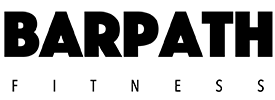
By Katie Kollath, M.S., Health and Human Performance
Katie is a Certified Personal Trainer with a Masters degree in Health and Human Performance. She co-owns Barpath Fitness with business partner and friend, Heather Hamilton. She’s been working as a trainer for over 10 years and currently trains in person in the Denver, Colorado metro area, as well as coaches remote clients online all over the world.
Today’s culture is centered around dieting and fat loss, which can have a lot of long term harmful effects. If individuals focus on healthy eating, however, it can eliminate the need to diet and help the body feel nourished and properly fueled to live an active and long life. This article goes over what healthy eating is, and provides some tools to start eating healthy today.
What Is Considered Healthy Eating?
Eating healthy is essentially eating foods that nourish your body. These foods are whole, natural, and single ingredient. They naturally contain a high nutrient content, give your body energy, and provide a healthy body composition if eaten regularly. Generally, eating healthy fosters a good relationship with food. Eating healthy isn’t restrictive, it’s reasonable. You can have a bag of chips and treats, however, your healthy eating habits are guiding the overarching food decisions you make.Understanding Dieting: Pros & Cons
Dieting can be summarized by eating in a caloric deficit in order to lose weight. Usually, individuals that diet don’t consider food quality as much as eating as few calories as possible. Dieting can potentially help an individual gain a healthier body composition for a certain amount of time, and there may be some health benefits depending on the “diet”, but this is usually short term. However, there are a lot of cons to dieting. These include adapting a poor relationship with food, not properly fueling the body (which usually means you’re under-muscled and have a higher percentage of body fat if you’re a chronic dieter), not giving the body enough nutrients for optimal function, starving your brain of energy and nutrients, and ascribing to no other fitness goal other than losing weight by any means necessary. Each individual can make choices for themselves, however, dieting can cause a lot of long-term problems for short term results.Healthy Eating vs Dieting
Benefits Of Eating Healthy For Long-Term Health
In a nutshell, eating healthy means eating for longevity and long term health. Eating healthy means living longer, living in less pain, and having more energy and vitality.Potential Pitfalls Of Fad Diets
If you want to eat healthy, avoid fad diets, which are extremely restrictive and promote a negative and unrealistic relationship with food. Most people wind up feeling like a failure when they can’t adhere to the strict restrictions of fad diets, then stop eating healthy altogether. In some extreme cases, depriving yourself of essential nutrients through adhering to fad diets can cause you to develop an eating disorder. However, when you eat healthy, You’re making informed eating decisions on a daily basis. And when you eat the ice cream, it feels guiltless – like it should!How To Transition From Dieting To Eating Healthy
If you’re wanting to get off the hamster wheel of dieting and start eating healthy, we have a couple of tools we suggest you use until eating healthy feels informed and intuitive for you. A large part of eating healthy is knowing your target daily macros. If you need to figure out your ideal daily macros, read our blog. It’s important to understand your macronutrient composition and figure out what’s optimal for you, but it’s equally important to eat your ideal macro amount with healthy food. An example of this is hitting your daily protein amount by eating chicken, eggs, and fish instead of drinking 3 scoops of protein powder. Remember, try to eat REAL food. Processed foods (which can still be organic, keto, paleo, etc.) are not good for the body. If you struggle with food tracking or you’re recovering from disordered eating, just making sure you eat enough protein every day is a good place to start. It’s also important to know what your maintenance calories are. The best tool to track your macros and calorie intake to make sure you are hitting both everyday is to track your food on an app. Through using an app, you learn what foods represent what macronutrients and caloric makeup. If you don’t have the greatest eating habits now, it’s hard to “intuitively eat” what’s healthy for you. You have to start with a basic knowledge of what is “healthy” as far as macro and micronutrients and your maintenance calorie needs are through tracking. Over time, you’ll start to understand what healthy “feels” like and eat intuitively so you don’t need to track your food forever. Over time, you’ll find that you’ll tend towards eating the same sort of meals that you think are delicious yet nutritious. That’s the sweet spot!How To Maintain A Healthy Eating Lifestyle
Here are some tips to transition from dieting to eating healthy:- Focus on health, not weight – Always go for whole nutrient dense foods
- Develop sustainable eating habits – find healthy foods you enjoy and eat them often
- focus on gradual changes vs abrupt changes – Focus on adding positive habits versus taking things away
- Know your portions – Fill your plate with a big portion of protein, then divide the rest of the plate with veggies/fruits and a starchy/carb source.
- Enjoy each bite of food – be present when you eat and learn how to listen to your full signals.



